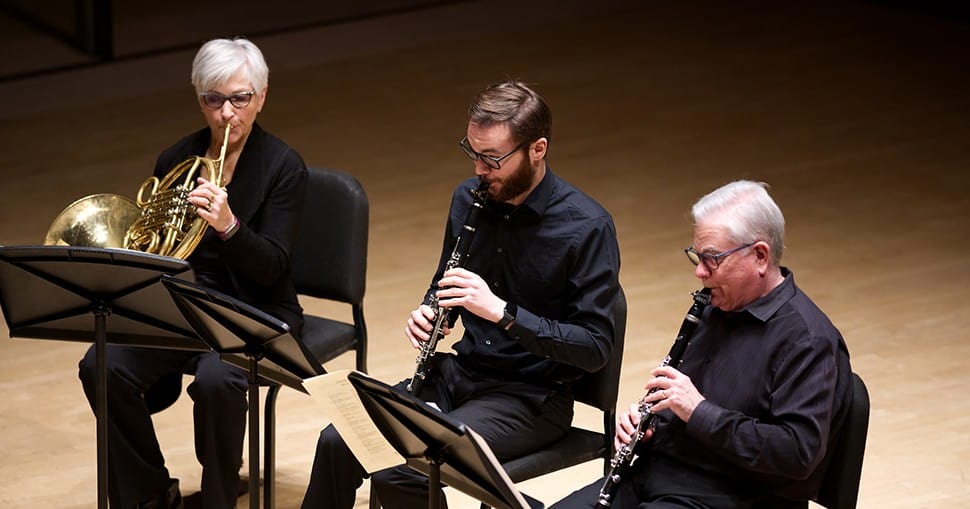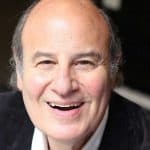by Steven Cohen
In my last post, I talked about various things related to going to college as a music major and what to think about before applying or even deciding where you’ll apply. Generally speaking, I wrote about the importance of finding a teacher who will be honest with you and not just try to get you to come and study with them. Also, I spoke of being honest with yourself about your general abilities and how willing you’d be to face the level of work required to get a job playing your instrument in a professional setting.
You cannot know where things will lead, but if you are prepared to work, you will at least have your eyes wide open as the years pass, and you’ll be able to take advantage of whatever comes your way.

In this and blog posts to come, I will get a bit more specific. I will talk about a few more things that might help in your college search.
Today’s focus will be on how you might evaluate a teacher in any school.
In subsequent posts, I will attempt to discuss how to make a list of places you can potentially be accepted to and then what is the basic difference between a conservatory, a university, and a liberal arts college?
Ways of trying to evaluate a teacher
This is a tough one to answer primarily because it is virtually impossible to know during a short trial lesson everything you’d like to know about someone and how they will react to you as a student. No matter how famous they are as a performer or a pedagogue and how many successful students they’ve had, how they might work with you or what you can expect from them is an important thing to try and figure out if possible.
I strongly recommend trying to take a lesson with them. Not all teachers will agree to this or be able to fit you into their schedule, and most will charge you for it. But it is worth trying. There are a few things to consider here. Reputations are important, but so is chemistry. After all, you would prefer to work with someone (you are, after all, going to a school as an undergraduate for 4 years) who will help you and not begrudgingly! Taking one lesson is not the only way to evaluate an instructor, but it isn’t a bad way if you don’t think of it as foolproof. It becomes one of the elements in the mix of your decision-making process.
If you’ve had good instrumental schooling before college, would this teacher change things? That is often a good thing, but not always. Is their playing a model for you or if it involves changing equipment, you could end up spending a lot of money and be no better off sometimes. This choice ultimately is of the utmost importance to you, and doing some research is a way of finding out more. Will you get weekly lessons with this person, or will you potentially work with an assistant, will this teacher be a strong advocate for you, or will you just be another student? It is impossible to tell for sure ahead of time, and you need to have your eyes open and ASK questions. Will they be around to teach me?
Talent isn’t the only thing
However, one thing is clear. Talent is only a small part of what shapes the choices you’ll make. The main difference between the sociable high school band or orchestra and the discipline, hard work, and time needed to become truly proficient on one’s instrument to pursue any one of those careers really comes down to what kind of time and commitment you are willing to make.
I have had many students at Northwestern University and other schools at which I have taught who were hopeful but ultimately ambivalent. We have a 5-year dual degree program that became sort of the hallmark of what happens at a place like Northwestern, a university with a top-notch music school within it and in a major city. There are many other schools that fit into this category. But it still comes down to making decisions from you. There simply is no substitute for hard work and time.
Other things to consider
Contact some of their current students
Perhaps second in importance to having a lesson is contacting some of the current students. See what their take is on things. This is not a guarantee either, but it is doing your “due diligence” before making a commitment. Include your parents in discussions about this, even if they are not musicians. I never mind having a parent sit in on a trial lesson, but some teachers and students might.
Look up the bio of potential teachers
- With whom have they studied?
- With whom have they performed?
- How successful have their former students been in the music industry?
Find examples of the faculty member’s playing and teaching style
Finally, go on the Internet and find examples of the faculty member’s playing and teaching style. Do you admire their sound, style, interpretation, and their approach to their instrument?
This is a big commitment on your part and a big investment on your and your parents’ part. I encourage all of you to do your homework about these things as best you can. Of course, it is important to gain your teacher’s trust and know they are the ones you are looking to for answers. It’s just not everything!
In Conclusion
We hope this blog, and the advice presented here, can help our students navigate the next steps one must take after High School. Below is our contact form, please feel free to reach out with any questions or concerns. We look forward to working with you.
About the Author
Steve Cohen is the retired professor of clarinet at Northwestern University. Since living in Chicago he has also performed many times with the Chicago Symphony, Chicago Lyric Opera, and as principal clarinet with the Music of the Baroque Orchestra. He is the former principal clarinetist with the New Orleans Symphony. Steve has toured in the U.S. as principal clarinet with the Texas Opera Theater and throughout Europe as principal clarinet with the Seoul Philharmonic Orchestra. He has performed solo recitals and master classes throughout the U.S., Europe and Korea, was guest artist with the Seoul Philharmonic Clarinet Festival, the Oklahoma Clarinet Symposium on several occasions and the Bay Chamber Concerts in Rockport, Maine.
His teachers include Loren Kitt, Larry McDonald, Karl Leister, and Robert Marcellus. He is a former faculty member at the Cincinnati College-Conservatory of Music and Louisiana State University. Steve is an artist/clinician for Buffet clarinets and is a Legere reed artist. He was a host of the ICA 2001 convention in New Orleans.
(Read more about Steven Cohen from his Bio at Northwestern University)
Contact Us
Did you find this blog helpful? Do you want to attend a music college or conservatory? If the answer to that is a “yes”, your next step is simple. Visit insidemusicschools.com and allow our team of industry insiders to guide you toward your goal of being a professional in the music industry. Through expert counseling and real-world experience, we will make sure you are prepared for the journey.
Founder & President at Inside Music Schools | Insidemusicschools.com
Head of admissions and faculty member at Berklee College of Music for 40 years, Steve Lipman and our team at Inside Music Schools speak music as their primary language. We approach each client contact with open eyes, ears, and minds. As the country’s premier music school consultant, he has advised students from the United States, Canada, the U.K., India, Singapore, Dubai, China, Australia, Turkey, Colombia, Argentina, Brazil, Japan, Israel, Italy, Russia and elsewhere.

